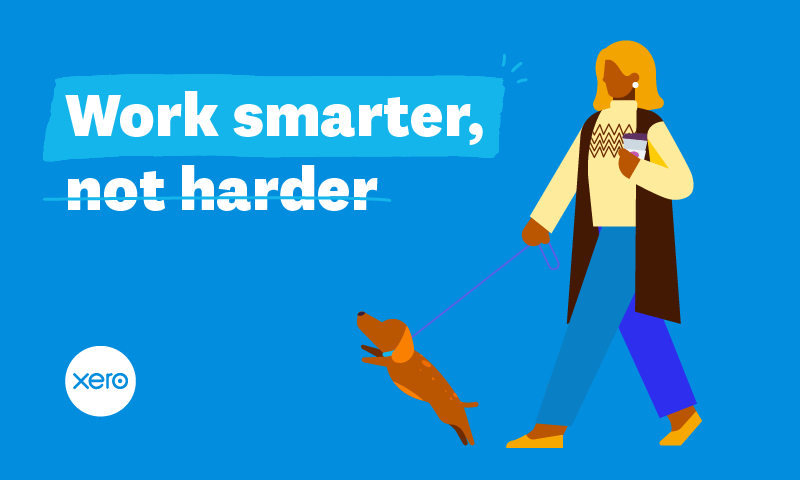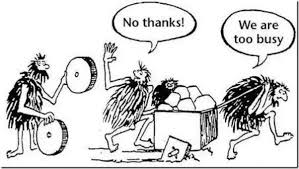Introduction to Psychology
(Spring 2024)
Course:PSYC 1100: Introduction to Psychology
Professor:Dr. Linda M. Woolf |  |
Office Hours:
- Monday, Wednesday, or Friday 10-10:50 or by appointment! Email to schedule a Zoom appointment!
- Phone: 314-246-7062
- Email through Canvas or woolflm@webster.edu
- Woolf Web Page: http://faculty.webster.edu/woolflm/
Text:
Stanger, C., & Frantz, S. (2023). Introduction to Psychology (v.4). Flatworld. ISBN: 978-1-4533-9952-1 (Cheapest if purchased or rented directly from the publisher - https://students.flatworldknowledge.com/course/book/28775).Psychological Contributions to Achieving the Sustainable Development Goals - https://www.apa.org/international/united-nations/contributions-sustainable-development-goals.pdf (also on Canvas under Modules)
Catalog Description
Introduces the breadth and diversity of contemporary psychology. Provides a foundation from which the student might progress to more advanced, specialized courses. Topics include learning, perception, biopsychological processes, childhood and development, adjustment and mental health, and social behavior.
Expanded Course Description:
Psychology can be defined as the scientific study of mental processes and behavior. Although psychology is most often associated with clinical issues (i.e. abnormal, personality), this makes up only a small portion of the field. Other specialties within the field include, to name a few, physiological, social, organizational, and developmental psychology. We cannot understand ourselves or the individuals around us without looking at how we develop, how we behave in a social context, or the physiological components of our behavior. Thus, this course will serve as an overview of the major fields within psychology with an emphasis on developing an understanding of psychology as the science of human thought and behavior. We will also learn to critically evaluate "common sense" knowledge about how people function.PSYC 1100 has been coded for the Social Systems and Human Behavior content area.
PSYC 1100 has been coded for the Critical Thinking skill area.
Course Objectives and Outcomes:
- Objective: To gain a better understanding of the field of psychology both historic
and current.
- Objective: To become familiar with the research methodology commonly used by
psychologists. To become familiar with the scientific method, and examine the benefits and
limitations of this method of inquiry as it relates to developmental psychology.
- Objective: To become familiar with the biological bases of behavior.
- Objectives: To develop an understanding of processes involved in learning and cognition.
- Objective:To develop an understanding of the various types of development that an individual experiences across the life-course.
- Objectives: To become familiar with the theories concerning psychological health and
disorders.
- Objective: To become familiar with the theories concerning human behavior in a social
context.
- Objective: To become familiar with the rapidly growing body of literature on psychology.
Incoming Competencies/Prerequisites:
All students should be capable of integrating and evaluating information, critical thinking, and writing at the college level.
Class Meetings:
The class will meet on Monday, Wednesday, and Friday from 11:00 - 11:50. Attendance is strongly recommended as material will be presented that is not in the book and missing class can adversely impact your grade. Besides, it is fun to get together and talk!
Course Requirements:
Six quizzes, an application project, three article review papers, a critical thinking review paper, and a self-reflection paper.All grades will be assigned on a scale of 0 - 10 with:
90 - 100 A-, A Superior Work 80 - 89 B-, B, B+ Good Work 70 - 79 C-, C, C+ Satisfactory Work 60 - 69 D, D+ Passing, but less than Satisfactory (not passing if a requirement for the major or general education) Less than 60 F Failing
Percent of Grade:
Examinations 50% Application Project 15% Article Review Papers 10% Critical Thinking Review Paper 15% Self-Reflection Paper 10% Quizzes: Six quizzes will be given and the examination format will include multiple choice and short answer. The quizzes will cover material presented in lecture, readings, and discussion. The lowest quiz grade will be dropped. POLICY STATEMENTS: All quizzes must be taken on the date scheduled. No make-up exams will available for students without a documented excuse AND who discuss their situation with the professor prior to missing an exam. Students with learning challenges, documented learning disabilities, and students for whom English is not your first language, should discuss with me how to take your quizzes in the Academic Resource Center.
Additional study materials have been placed or will be placed on Canvas for the class. For example, I will place selected slides from my lecture on this site prior to each quiz (not all slides will be put online and are only available after the lecture) and there is information related to “How to Study”—-research-based approaches for success! Application Project: How does psychology make a difference in the world? We will be applying what we learn in the class to the United Nations Sustainable Development Goals (SDGs). As we work through the major areas of psychology, individually or in pairs, you will be working to create a series of infographics addressing how research from psychology can be used to facilitate development in each of these areas. We will first learn about the various goals, you will be introduced to a document, which provides a foundation for the application of psychology to these goals, you as an individual or with a partner will develop a series of infographics (a great skill to learn!) and apply specific topics to particular SDGs. These infographics will be uploaded onto Canvas to share with your colleagues in class! More information will be provided as we move through the course.
Self-Reflection Paper: At the end of the term, you will be asked to write a reflection paper concerning what you have learned in the class including an analysis of how the class has shaped your view of psychology and influenced your thinking about how you will use this information in your future.
Article Review Papers: Students are required to review two research articles as assigned in class and placed on Canvas. The specific requirements are given below:
- To facilitate the development of critical thinking skills students will evaluate three articles. Each analysis should be 3-4 pages in length (approximately 800 - 1200 words) and evaluate:
All article reviews are to be uploaded to Canvas. Students are required to complete two papers unless you are satisfied with your grades on the first paper. The top grade will be recorded. Typically, the first paper is the lowest grade. The feedback regarding APA format and the quality of the analysis results in higher grades on the second papers. A sample review will be provided.
Critical Thinking Review Paper: Students are required to research and write a critical thinking review paper for 15% of their final grade. The specific requirements are given below:
- To assess critical thinking, students will be given the opportunity to evaluate current literature related to a controversial contemporary issue in psychology (e. g., child spanking, Mozart Effect). Students need to assess the existing research on the topic, critique different perspectives on the issue using existing research, and provide an informed conclusion based on their knowledge of the topic and psychology. The paper is to be a 7 - 10 page (this page count does not include the title page, abstract, or references (approximately 2100 - 2800 words) review and analysis. A sample paper will be provided.
Critical Thinking Course Outcomes:Critical Thinking: Habit of mind characterized by the comprehensive exploration of issues, ideas, artifacts, and events before accepting or formulating an opinion or conclusion, carried out by analyzing and evaluating assumptions and arguments, constructing well-supported arguments, and developing innovative plans or ideas to solve problems.
Upon the successful completion of this course, students will be able to:
- Describe an issue/problem clearly and comprehensively, delivering all relevant information necessary for full understanding.
- Develop a comprehensive analysis or synthesis of the relevant evidence including the thorough questioning of experts.
- Analyze their own and others' assumptions and carefully evaluate the relevance of context when presenting a position.
- Present a position which is imaginative, comprehensive, and synthesizes all available information on the topic (including other points of view).
- Create/Extend a novel or unique idea, questions, format, or product to create new knowledge that crosses boundaries.
- Generate conclusions/outcomes that are logical and reflect a student's informed evaluation of the evidence.
- Deadline for final acceptance of papers is April 27. NOTE: This deadline is not a suggestion. Papers accepted following the deadline will experience a drop of one letter grade for every two days late except in cases of emergency discussed in advance with the instructor. It is up to the instructor's discretion whether to accept or not accept a paper following the April 27 deadline.
- A list of approved topics is available on Canvas. If you select a topic that is not on this list, you must receive approval in writing from the professor.
Policy Statements:
Use of Electronic Devices in the Classroom: Please respect others in the class by turning off all cell phones before entering the room. Text messaging during class is not acceptable. Laptops may be used in class but are only to be utilized for class related activities (e.g., taking notes). If it becomes apparent you are using the computer for non-class activities (e.g., checking your email, Facebook, playing games) then you may be asked to turn off your computer and refrain from bringing it into class in the future. Laptop use is restricted to the back or sides of the classroom so that other students are not distracted during lecture. Please be aware that according to research published in Psychological Science has demonstrated that taking hand-written notes leads to better processing of information and higher exam scores!Plagiarism (attempting to pass off the work of another as one's own) is not acceptable. Plagiarism includes copying all or part of another's writings (even a single sentence), inappropriate paraphrasing, using another student's paper as your own, submitting a paper for more than one class. All papers will be submitted to the university's plagiarism database for review. Plagiarism, either intentional or unintentional, will result in a grade of 0 for that assignment but also may be turned over to the appropriate university source for disciplinary action and a grade of F for the course. In addition, cheating on exams will also result in the same fate.
Here are some Web sites that will help you avoid the problem of plagiarism particularly plagiarism resulting from paraphrasing too closely to the original source. -
- Webster University Academic Integrity Page
- Establishing Authorship by Paul C. Smith, Alverno College
- How to Avoid Plagiarism Tutorial All students are required to complete and submit a copy of the “certificate of completion” for the following tutorial:
- The University of Indiana's Online Plagiarism Tutorial
AI Use Restricted
All work submitted in this course must be your own. Contributions from non-academic sources (such as AI tools) are prohibited. Contributions from approved sources must be fully acknowledged and properly quoted or paraphrased by you every time they are used. Failure to follow this policy constitutes a violation of academic integrity and may result in disciplinary action.
Additional Policy Statements
It should be noted that, as is common in many university courses, little time will be spent lecturing on topics adequately addressed by the text. Students are expected to arrive at class meetings having already read the material assigned, and to ask questions to clarify any areas that remain unclear. While every attempt will be made to explain or expand upon particularly difficult areas, the primary purpose of classroom lecture is to enhance, rather than to duplicate, the textbook material.
Students with disabilities who believe that they may need accommodations in this class are encouraged to contact me or the Director of the Academic Resource Center, as soon as possible to ensure that such accommodations can be implemented in a timely fashion.
Late withdraws from this class will not be approved by the instructor except in cases of emergency discussed with the instructor. No late withdraws will be approved on the basis of poor class performance.
This syllabus is subject to change at the instructor's discretion. All changes concerning course requirements will be provided in writing. Changes concerning exam dates may be made at the instructor's discretion and communicated verbally to the class.
It is understood that remaining in this course (not dropping or withdrawing from this course) constitutes an agreement to abide by the terms outlined in this syllabus and an acceptance of the requirements outlined in this document.
COURSE OUTLINE | |
Week Ending | Topic and Readings |
| January 19 | Introduction to the class What is psychology? Success thanks to Psychology!
Readings: |
| January 26 |
Introduction to the Class Continued How Psychologists do Research
Readings: |
| February 2 | How Psychologists do Research Quiz 1 - February 2 (Friday)
|
| February 9 | Memory and CognitionReadings:
|
| February 16 | Biology of Behavior
Readings:Article Review (Select One), Due February 17: Spindle, T. R., & Riener, C. R. (2013). The effect of anger and relaxation on the visual perception of distance. Psi Chi Journal Of Psychological Research, 18, 2-9. Matteucci, A. J., Albohn, D., Stoppa, T. M., & Mercier, W. (2012). Exercise behavior among college students and sex differences in a health-promotive intervention. Psi Chi Journal Of Psychological Research, 17, 163-170. |
| February 23 | Consciousness and the Two Track Mind (focus on sleep) Note that this is the beginning of next week, Quiz 2 - Monday February 26
|
| March 1 March 8 | Psychological Disorders Reminder Quiz Monday February 26, Quiz 3 - March 8 (Friday)
|
| March 22 | Developing through the LifespanReadings: |
| March 29 April 5 | Development continued; Learning Quiz 4 - April 5 (Friday)
Readings:Article Review (Select One), Due March 30: Brashier, E., Hughes, J. L., & Cook, R. E. (2013). A comparison of women in lesbian and heterosexual dual-income couples: Communication and conflict. Psi Chi Journal Of Psychological Research, 18, 170-175. Sijia, L., Hughes, J. L., & Su Myat, T. (2014). The links between parenting styles and imposter phenomenon. Psi Chi Journal Of Psychological Research, 19, 50-57.
|
| April 12 | Stress, Health, and Human Flourishing
Readings: |
| April 19 | Personality Quiz 5 - April 19 (Friday)
Readings: |
| April 26 May 3 | Social PsychologyReadings:Critical Thinking Paper due April 27 Self reflection paper due May 4 |
| See Final Exam Schedule | Quiz 6 - See the final exam schedule
|

